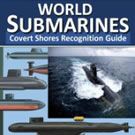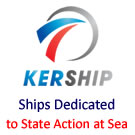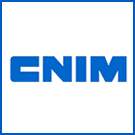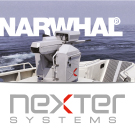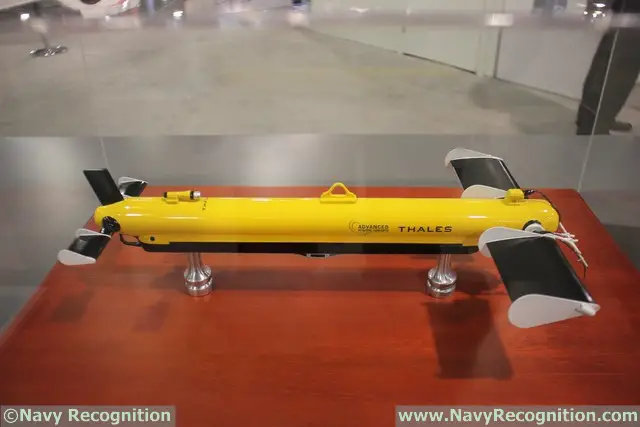 T-SAS scale model on AAC stand at Sea Air Space 2016 |
|||
T-SAS includes proven cutting edge Synthetic Aperture Sonar technology
for very high resolution as well as high coverage rate. Picture quality
combined with long range and high speed gives the operator a great advantage
for rapid sea bottom survey and appropriate decisions. Talking to Navy Recognition, Jim Gray, AAC VP of Business Development said “It is my opinion that there is a lot less risk for the US Navy if they would consider buying a system that has at least 9 years worth of operational experience and integrating that into the current LCS mine warfare mission package than trying to engineer stability into a sensor that was originally designed to be towed from a helicopter.” Compared to AQS-20 (the sensor originally intended for the LCS remote mine hunting system), T-SAS is a lot more stable thanks to its nose-mounted tow point. In addition, it is fitted with an active control means which precludes from performance degradations in case of rough seas. It is the only system bringing auto-stabilizing together with the state-of-the-art SAS (Synthetic Aperture Sonar) processing. Should the US Navy select the system, a large part of the manufacturing, engineering and sustainment would happen in the United States. Alternatively, AAC's Synthetic Aperture & Mine Detection Imaging Sonar (SAMDIS) could be fitted on AUV platforms such as Echo Ranger or Echo Voyager. SAMDIS is a very high-resolution synthetic aperture sonar with a multi-view capability which detects, classifies and locates mines with a high degree of reliability and very low false alarm rate. Selected by the Royal Navy and Marine Nationale, SAMDIS is primarily designed for Autonomous Under-water Vehicles (AUVs), which are equipped with intelligent onboard systems to interact effectively with the environment, avoiding obstacles and gathering all the data needed for full analysis and remediation of an area of interest. The same system can also be towed behind conventional surface vessels or USVs. |
|||
SAS 2016: AAC Offering an Alternative for LCS Mine Hunting Mission with T-SAS
- Posted On





